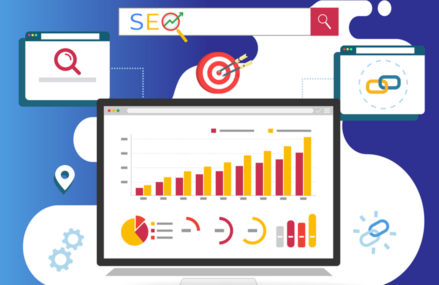Aside from managing your patients, pharmacy management software can streamline your work by fetching prompts and accurate reports. Apart from the benefits of centralized data storage and security, pharmacy management software can also help you improve customer satisfaction. The following are some of the benefits of pharmacy management software. Read on at Docstation.co to learn more! Below are some of the top reasons to use pharmacy management software. And to get started, browse the available features, functionalities, and costs to decide which one to buy.

Features
A pharmacy management system is essential for a pharma company and can help keep track of inventory and prevent physical wastage. It can also handle the process of stock distribution, which involves several steps. Manually tracking stock results in human error and increases the chance of mistakes. Pharmacy software has many features to improve the efficiency of a pharmacy. These include automated order management, inventory tracking, and a comprehensive inventory management system. Pharmacy management software also provides workflow integration and the ability to store records and log system activity.
A pharmacy management system should keep track of all patient information, including patient names, prescriptions, and expiration dates. It should be accessible to input data and remember it for later use. Moreover, it should be secure to minimize mistakes and data leaks. Most software applications come with 24/7 technical support, which can prove to be invaluable in times of problems with connectivity and other technical issues. Whether you are starting a new pharmacy or looking to upgrade an existing one, there is a pharmacy software system to suit your needs.
Functionality
The functionalities of pharmacy software vary depending on the type of business and the specific needs of the owners. Generally, the software has several modules with various features. For instance, an inventory management module may have features for uploading and updating stock levels, storing prescriptions, and managing supplies. Another module could include features for scanning and storing documents, including workers’ compensation forms. Therefore, when choosing a pharmacy management system, you should consider the objectives you have for the business.
A pharmacy management system has numerous features that can help improve the efficiency of the entire business. For example, it can be integrated with a mobile platform and streamline communication and patient engagement. Furthermore, it can be customized as per requirements. One such feature is Smart User Management, which allows the administrator to assign different privileges to different users. In addition, the system offers flexible security and is very reliable, considering the threat levels of hackers and other malicious software.
Integrations
When considering a new pharmacy management system, you might wonder how to integrate various tools into your system. One way to streamline workflows is to include eCommerce capabilities. This way, your website can process online sales and update stock information while keeping track of all activity. When online transactions are processed, RxOne automatically creates a customer profile. It can also record a customer’s delivery address. With such features, you’ll be able to give more personalized service to your customers.
Another way to improve patient care is by integrating your pharmacy management system with your Practice Management System (PMS). When the two systems are integrated, you’ll be able to share important information and better serve your patients. The benefits of this type of integration are many. For example, not only will you be able to keep track of your patient’s prescription history, but you’ll also be able to share that information with your clinicians and staff, resulting in better patient care.
Costs
There are several different costs associated with pharmacy software. The software itself may cost as much as $10,000 and additional costs, including the cost of training staff. A good rule of thumb is to budget between $15,000 and $30k for the software installation. The software may also require a monthly fee for upgrades and support. While some systems do not have such a fee, some can. New pharmacies should expect to spend approximately $15,000 to $30k on the software.
The costs of pharmacy software vary, depending on the features and functionality. Many solutions are inexpensive for smaller operations. However, some are quite pricey for larger operations. They may cost as much as $15k for a one-time fee or as little as $50 a month. Some software will even include the necessary hardware, such as a workstation and a server. Others will require additional hardware such as thermal label printers, barcode readers, and biometric fingerprint readers.
Cloud-based solutions
Cloud-based solutions for pharmacy software are a great way to improve your business’s efficiency. Many pharmacy software solutions are integrated with other systems, making them easy to integrate. Pharmacy management software, for example, can automate a variety of processes. These processes include prescription processing, billing, and data entry. In addition to automating these tasks, pharmacy management software can help you manage your staff, plan staff rosters, and monitor working hours.
Moving data to the cloud can enhance your customer experience. With real-time access to customer data, you can gain an in-depth understanding of their needs and purchasing habits. Cloud-based solutions for pharmacy software are designed to support the needs of pharmacies and their customers. They ensure profitability and market value by managing inventory, billing, and customer data. Cloud-based pharmacy software solutions can adhere to strict regulations and enhance data security. Additionally, cloud-based solutions allow pharmacies to update their devices with new technology.
Requirements
When choosing a pharmacy management system, there are several features that you need to look for. While the right solution can help your business grow, there are a few basic requirements to look for. These include ease of use, customization, and the ability to manage your cash flow. Here are some features to look for when choosing a pharmacy management system. Then, ensure the software you select can handle these essential functions.
The system should include the ability to send notifications to users based on their preferences. In addition, the system should be able to provide personalized information to the pharmacy’s needs. For example, the pharmacy should be able to send out messages based on the patient’s insurance provider, order delivery tracking, or other highly personalized communications. For example, it should allow patients to set up account preferences and get alerts when they need to refill their medications.



